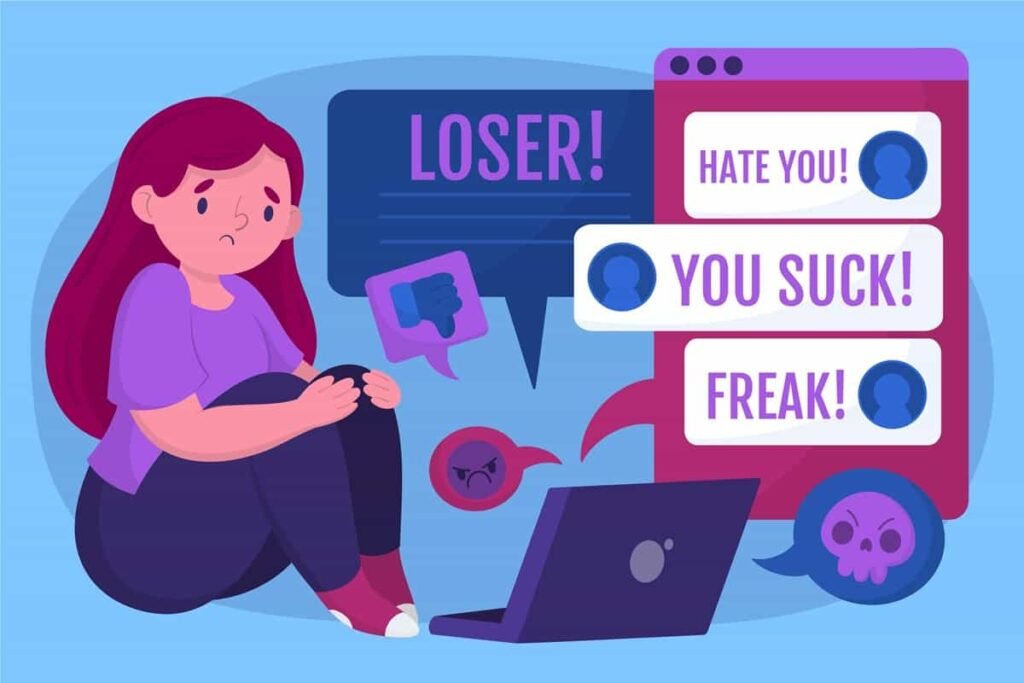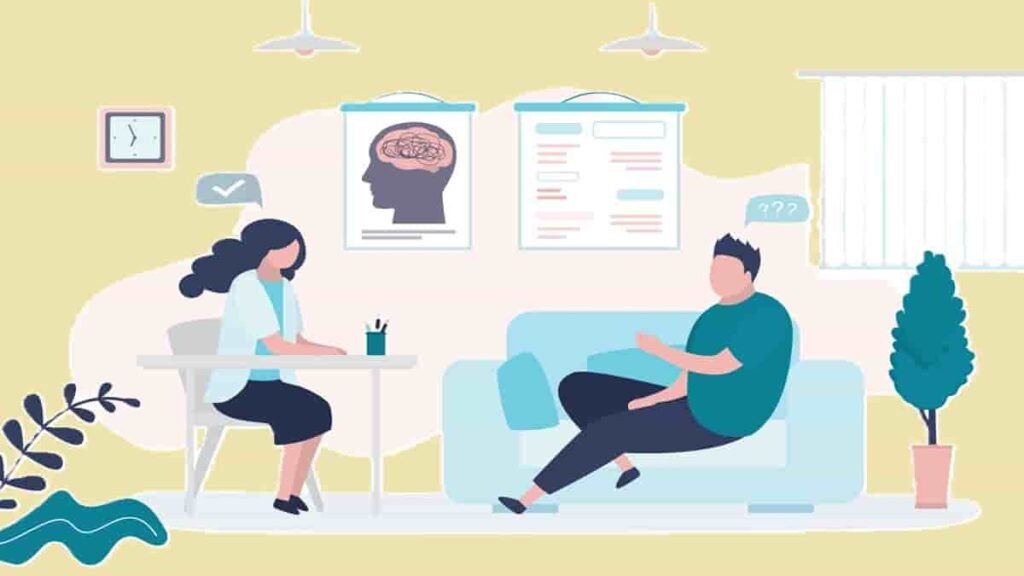Internet Trolling. The internet, a vast and interconnected landscape, is a powerful tool for communication, education, and entertainment. However, lurking in the shadows of this digital utopia are internet trolls. These individuals, driven by a complex mix of motivations, engage in disruptive and inflammatory behavior, often with the sole purpose of provoking reactions and disrupting online communities. While often dismissed as mere pranksters, understanding internet trolling and its impact is crucial for creating a healthier and more productive online environment.
This post aims to dissect the phenomenon of internet trolling, exploring its various facets, from the psychology behind the behavior to the strategies for mitigating its negative consequences. We’ll delve into the different types of trolls, examine their motivations, and discuss the psychological impact trolling can have on individuals and communities. Finally, we’ll provide actionable strategies for dealing with trolls and fostering a more civil online discourse.
Internet Trolling

What Exactly is Internet Trolling?
At its core, internet trolling involves deliberately attempting to disrupt online discussions, provoke emotional reactions, and generally sow discord. The specific tactics employed by trolls vary widely, but common strategies include:
- Personal Attacks: Direct insults, name-calling, and derogatory remarks directed at individuals.
- Off-Topic Posts: Introducing irrelevant or controversial topics to derail conversations.
- Griefing: Intentionally harassing and annoying other players in online games.
- Spreading Misinformation: Sharing false or misleading information to incite anger or confusion.
- Using Inflammatory Language: Employing offensive, hateful, or provocative words to trigger strong emotional responses.
- Ad Hominem Arguments: Attacking the person making an argument rather than addressing the argument itself.
- Sealioning: Demanding endless evidence and asking repetitive questions in bad faith, often to waste the time and energy of others.
- Doxxing: Publishing private or identifying information about an individual online, usually with malicious intent.
The defining characteristic of trolling is the intent to provoke a reaction. Trolls thrive on attention, and any response, even a negative one, fuels their behavior.
The Psychology Behind the Troll Mask: Why Do People Troll?
Understanding the motivations behind trolling is essential for developing effective strategies to combat it. While the specific reasons vary from individual to individual, several common psychological factors contribute to this behavior:
- Attention Seeking: For many trolls, the primary motivation is simply to gain attention. They crave recognition, even if it’s negative. Provoking a reaction provides them with a sense of power and validation.
- Entertainment and Boredom: Some trolls view their activities as a form of entertainment, finding amusement in the chaos and reactions they create. Boredom can also be a contributing factor, with trolling serving as a way to alleviate monotony.
- Feeling of Anonymity and Disinhibition: The anonymity afforded by the internet can embolden individuals to engage in behaviors they wouldn’t consider in real-life interactions. This disinhibition effect allows trolls to express aggression and hostility without facing real-world consequences.
- Sadism and Machiavellianism: Studies have linked trolling behavior to personality traits such as sadism (deriving pleasure from the suffering of others) and Machiavellianism (manipulating others for personal gain). Trolls with these traits may derive satisfaction from causing emotional distress and disrupting online communities.
- Group Dynamics and Social Reinforcement: Trolling can sometimes be a group activity, with individuals participating to gain acceptance and approval from other trolls. This social reinforcement can further exacerbate the behavior.
- Low Empathy and Lack of Social Skills: Trolls may struggle with empathy and have difficulty understanding or appreciating the impact of their actions on others. This lack of social awareness can contribute to their willingness to engage in harmful behavior.
- Frustration and Anger: Sometimes, trolling can be a manifestation of underlying frustration and anger. Individuals may use online platforms to vent their feelings and lash out at others, particularly when they feel powerless or disenfranchised in their real lives.
- Political or Ideological Motivations: While not all trolls are politically motivated, some individuals engage in trolling to promote their political agendas or to attack opposing viewpoints. This type of trolling can be particularly divisive and harmful.
It’s important to note that not all trolls are malicious or consciously aware of the harm they inflict. Some may genuinely believe they are being funny or satirical, while others may simply lack the social skills to communicate effectively. However, regardless of the underlying motivation, the impact of trolling can be significant and should not be dismissed lightly.
The Different Shades of Trolling: Classifying Troll Types
While the general definition of trolling remains consistent, the specific approaches and motivations of trolls can vary. Understanding these different types can help in identifying and addressing their behavior more effectively:
- The Classic Troll: This is the stereotypical troll who delights in causing chaos and provoking emotional reactions through offensive language, personal attacks, and disruptive behavior. Their primary goal is to get a rise out of others.
- The Grievance Troll: This type of troll has a specific grievance or axe to grind and uses online platforms to air their complaints and attack those they perceive as responsible. They often target specific individuals or organizations.
- The Political Troll: As mentioned earlier, political trolls are motivated by political or ideological agendas. They use trolling tactics to promote their views, attack opposing viewpoints, and spread misinformation.
- The Attention Seeker: This type of troll craves attention and recognition above all else. They may use outlandish statements, controversial opinions, or even self-deprecating humor to elicit a response from others.
- The “Just Joking” Troll: This type of troll often hides behind the guise of humor or satire to justify their offensive or harmful behavior. When confronted, they may claim they were “just joking” or that others are “too sensitive.”
- The “Concern Troll”: This is a more insidious type of troll who pretends to be concerned about a particular issue or group but actually uses this pretense to subtly undermine or attack them. They often express their opinions in the form of “helpful suggestions” or “genuine concerns.”
- The Grammar/Spelling Nazi: These individuals focus on correcting minor errors in grammar and spelling, often aggressively and condescendingly. While correct grammar is important, these trolls use it as a weapon to belittle and intimidate others.
This list is not exhaustive, but it provides a general overview of the different types of trolls that can be encountered online. Recognizing these different types can help in tailoring the appropriate response strategy.
The Price of Discord: The Impact of Trolling on Individuals and Communities
The impact of trolling can be far-reaching and detrimental, affecting both individuals and online communities. Understanding these consequences is crucial for recognizing the seriousness of the issue and taking steps to mitigate its effects:
- Emotional Distress: Trolling can cause significant emotional distress for victims, including feelings of anger, frustration, anxiety, sadness, and even depression. Persistent trolling can lead to long-term psychological damage.
- Fear and Intimidation: Trolls often use threats and intimidation tactics to silence their targets and discourage them from expressing their opinions. This can create a climate of fear and stifle open discussion.
- Loss of Self-Esteem: Personal attacks and derogatory remarks can damage an individual’s self-esteem and confidence, particularly when the attacks are persistent and targeted.
- Withdrawal from Online Communities: Trolling can make individuals feel unwelcome and unsafe in online communities, leading them to withdraw from participation and isolate themselves.
- Disruption of Online Discussions: Trolling can derail conversations, distract from important topics, and generally make it difficult to have productive online discussions.
- Erosion of Trust: Trolling can erode trust within online communities, making it difficult for individuals to collaborate and build meaningful relationships.
- Increased Polarization and Division: Political trolling, in particular, can contribute to increased polarization and division, making it more difficult to find common ground and engage in constructive dialogue.
- Real-World Consequences: In some cases, trolling can have real-world consequences, such as job loss, reputational damage, and even physical harm. Doxxing, for example, can expose individuals to harassment and threats in their real lives.
The effects of trolling can be particularly devastating for vulnerable individuals, such as children, teenagers, and those with pre-existing mental health conditions.
Fighting Back: Strategies for Dealing with Trolls and Creating a Healthier Online Environment
While completely eliminating trolling is likely impossible, there are several strategies that individuals and communities can employ to mitigate its impact and create a more civil and productive online environment:
- Don’t Feed the Trolls: “Don’t Feed the Trolls” is the golden rule for dealing with trolls. This means avoiding engaging with them, responding to their comments, or otherwise giving them the attention they crave. Ignoring them is often the most effective way to discourage their behavior. When trolls don’t get a reaction, they are more likely to move on to other targets.
- Report and Block Trolls: Most online platforms have mechanisms for reporting trolls and blocking them from interacting with you. Utilize these tools to remove trolls from your online experience.
- Moderate Online Communities Effectively: Moderators play a crucial role in creating a positive and supportive online environment. They should be vigilant in identifying and removing trolls, enforcing community guidelines, and fostering respectful communication.
- Establish and Enforce Clear Community Guidelines: Clearly defined community guidelines can help to prevent trolling by setting expectations for acceptable behavior and outlining consequences for violations.
- Promote Positive and Supportive Communication: Encourage members of your online community to engage in positive and supportive communication. This can help to create a more welcoming and inclusive environment, making it less appealing for trolls.
- Educate Yourself and Others About Trolling: The more people understand about trolling, the better equipped they will be to recognize it, avoid engaging with it, and support victims of trolling.
- Practice Empathy and Understanding: While it’s important to protect yourself from trolls, it’s also important to remember that they are often struggling with their own issues. Practicing empathy and understanding can help to de-escalate situations and prevent further harm.
- Seek Support if You Are Being Trolled: If you are being targeted by trolls, don’t hesitate to reach out for support from friends, family, or mental health professionals. It’s important to remember that you are not alone and that there are people who care about you and want to help.
- Engage in Constructive Dialogue: Instead of resorting to personal attacks and inflammatory language, try to engage in constructive dialogue with others, even when you disagree with them. This can help to bridge divides and promote understanding.
Beyond the Battlefield: Addressing the Root Causes of Trolling
While the strategies outlined above can help to mitigate the immediate impact of trolling, addressing the root causes of this behavior is essential for creating a more sustainable solution. This requires a multi-faceted approach that includes:
- Promoting Online Civility and Respect: Educational programs and public awareness campaigns can help to promote online civility and respect, encouraging individuals to treat each other with kindness and understanding.
- Developing Social and Emotional Skills: Social and emotional learning programs can help individuals to develop empathy, self-awareness, and social skills, making them less likely to engage in harmful behavior online.
- Addressing Mental Health Issues: Mental health issues can contribute to trolling behavior. Providing access to mental health services and reducing the stigma associated with mental illness can help to prevent trolling.
- Combating Online Anonymity: While anonymity can be a valuable tool for protecting privacy, it can also embolden trolls to engage in harmful behavior. Exploring ways to reduce online anonymity without compromising privacy can help to deter trolling.
- Holding Online Platforms Accountable: Online platforms have a responsibility to create a safe and respectful environment for their users. Holding them accountable for their content moderation policies and practices can help to prevent trolling.
Conclusion: Towards a More Civil Digital Future
Internet trolling is a complex and multifaceted phenomenon with significant consequences for individuals and online communities. Understanding the psychology behind trolling, the different types of trolls, and the impact of their behavior is crucial for developing effective strategies to combat it. By implementing the strategies outlined in this post, both individuals and communities can take steps to mitigate the impact of trolling and create a more civil and productive online environment.
Ultimately, creating a healthier digital future requires a collective effort. We must all be mindful of our own online behavior, promote positive communication, and support those who are targeted by trolls. By working together, we can create a more welcoming and inclusive online world for everyone.


